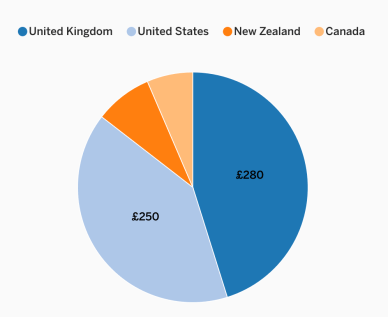 To celebrate the release of the audiobook version of my debut novel––Full Term, a Young Adult Contemporary––I have the great pleasure of interviewing my narrator, Eleanor Acquah.
To celebrate the release of the audiobook version of my debut novel––Full Term, a Young Adult Contemporary––I have the great pleasure of interviewing my narrator, Eleanor Acquah.
I found Eleanor via ACX, Amazon’s service for linking independent authors and audiobook producers. I typed in my preferences (a female English voice who could speak casually and do a couple of accents) and then scrolled, hoping to find someone who had the same background as my main character.
Eleanor immediately jumped out, A. because she had a good audio sample, and B. because she was one of the few black people on the site. My main character, Mya, is half Ghanaian, and as it turned out, Eleanor has Ghanaian heritage too. It was important to me to cast a person of colour in the role, where possible.
Here’s what she had to say about it all:
Can we start with you telling us a little about yourself?
I live in South London. I am a family support worker and have been working in this field for 18 years. I love spicy food and shopping!
What made you decide to narrate audiobooks and how did you get started?
From a young age, I was always doing impressions of the people around me; at the age of seven whilst watching TV, I had a lightbulb moment and wanted to be a voice-over when I was older. I have always had an interest in TV production and I actually wanted to be a camerawoman but choose the career path of helping people as it appealed to me. The voice-over was always in the back of my mind so decided to do it on the side for experience and to earn extra money. My first gig was doing jingles for a Christian radio show Omniscient Radio. When I got the message from Ellie about Full Term, I was in shock as most of my experience was from radio and projects for young people and animation. I had auditioned for audiobooks six years ago without success; thankfully my profile was still active!
So, Full Term is your first full audiobook. How do you feel it went? What did you learn? Anything you would do differently?
I feel it went okay, I was just so happy my audition went well, I just wanted to read! I learnt that producing an audiobook is not just about reading; it’s about trying to get the right pace and essence of the characters; the editing is a long process as you have to take out the breaths, listen to the playback whilst listening and reading along to ensure all of the words are said. If I had to do it again, I would ensure that the requirements to record are set prior to recording! And extra padding in my recording corner in my bedroom as the neighbours upstairs can be noisy.
Was there anything about the story that drew you in?
What drew me into the story was Mya could of had the baby at school considering she didn’t tell anyone about it. As I support children, young people and stories like this are very familiar to me. I actually have a young mum on my caseload who is in a mother and baby unit.
Do you have a favourite character?
Mya. I love her inner thoughts and her determination and she wants the best for Emma.
Anything else you’d like to add?
I am keen to find out what happens in the second instalment!
—
Thank you so much to Eleanor for answering my questions, and of course recording the book in the first place! If you would like to buy a copy, it’s available on Amazon, Audible, and via the Apple Store.
 If you were ever curious about how the crowdfunding thing works behind the scenes, I’m here to lift back the curtain. Purely because I think transparency is important and the taboo around money needs to die.
If you were ever curious about how the crowdfunding thing works behind the scenes, I’m here to lift back the curtain. Purely because I think transparency is important and the taboo around money needs to die. I said in
I said in  There comes a day when enough is enough.
There comes a day when enough is enough.
 Content warning for mention/discussion of death.
Content warning for mention/discussion of death. 
 It’s just over four years since I published the first ever edition of
It’s just over four years since I published the first ever edition of  Apparently it’s been around since February 2014, but I’ve only just heard about this thing called
Apparently it’s been around since February 2014, but I’ve only just heard about this thing called